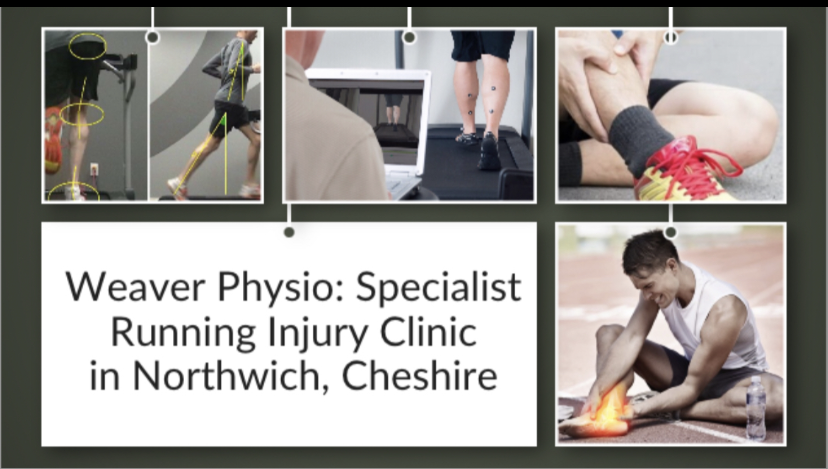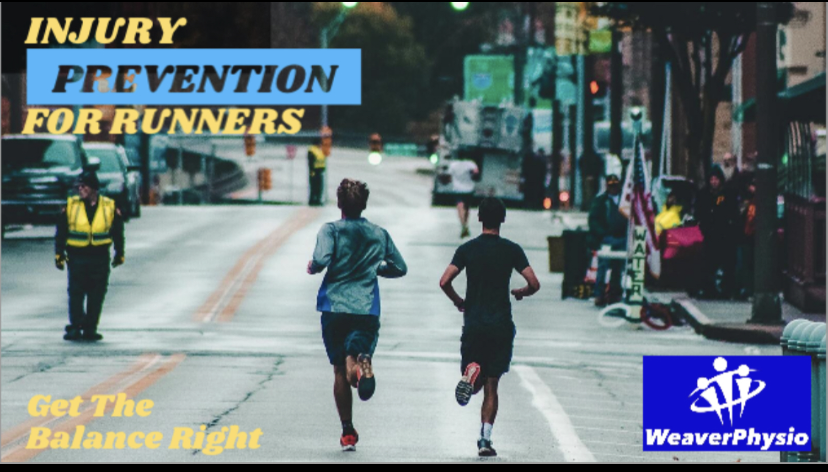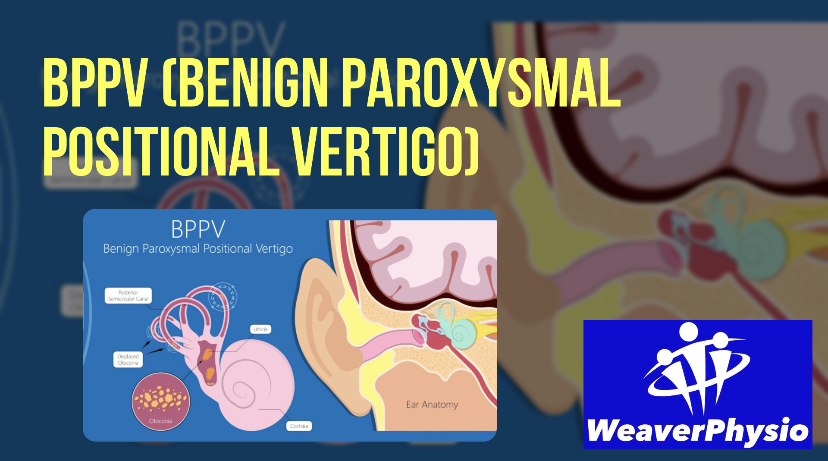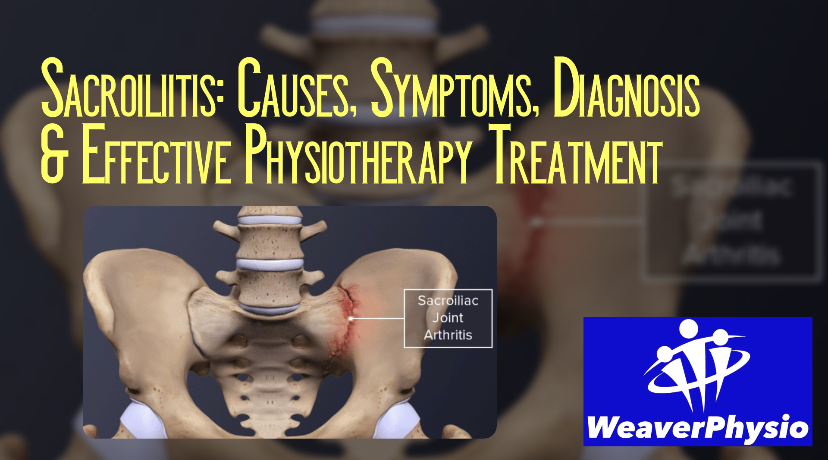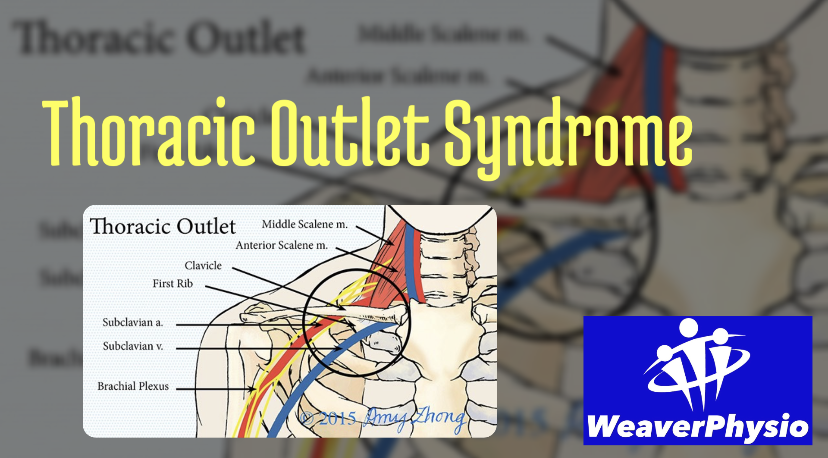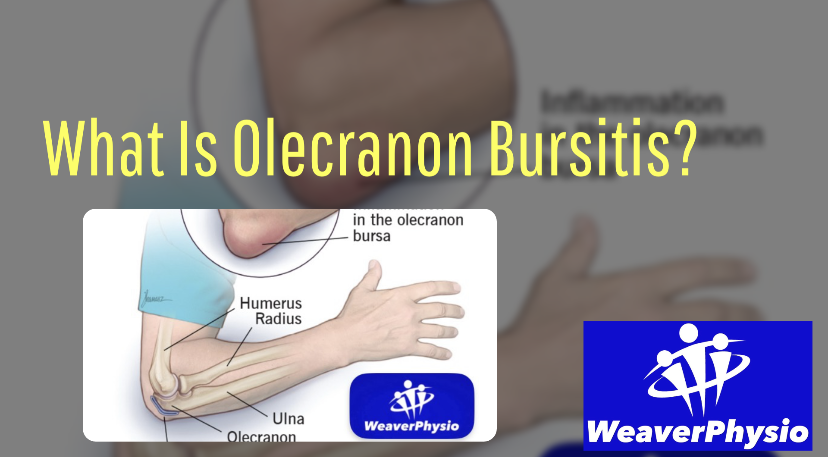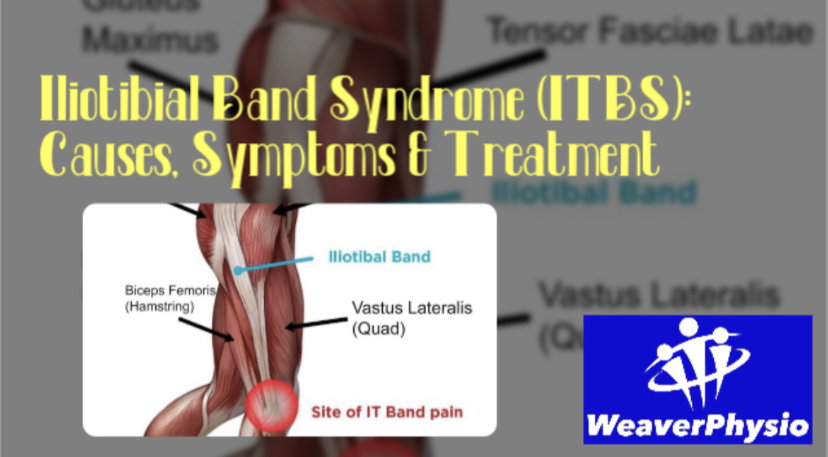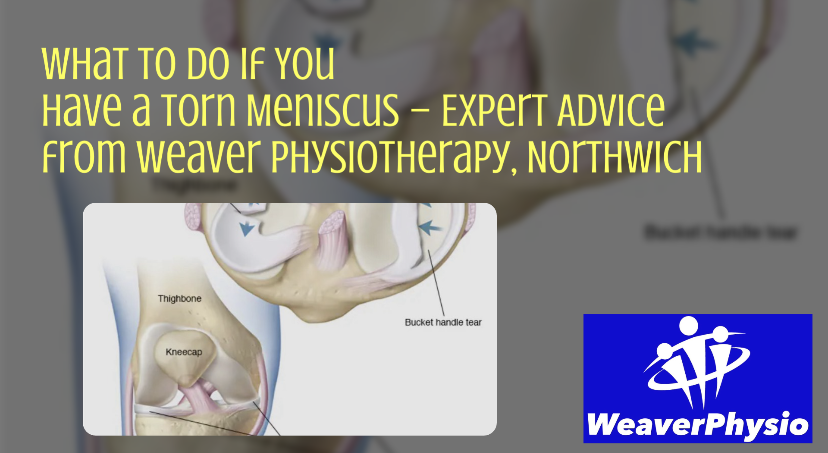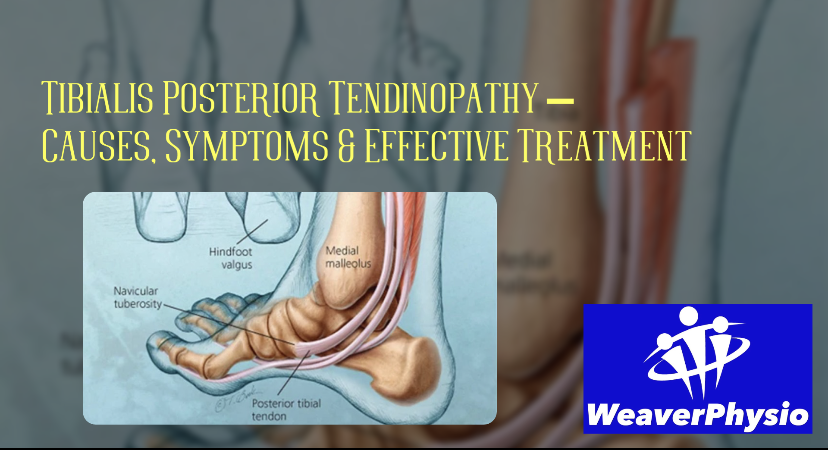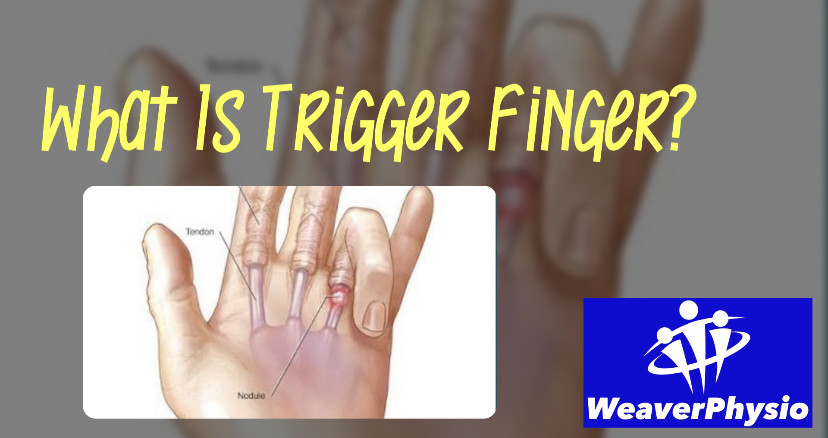When to See a Musculoskeletal Physiotherapist
Expert Advice from Weaver Physio
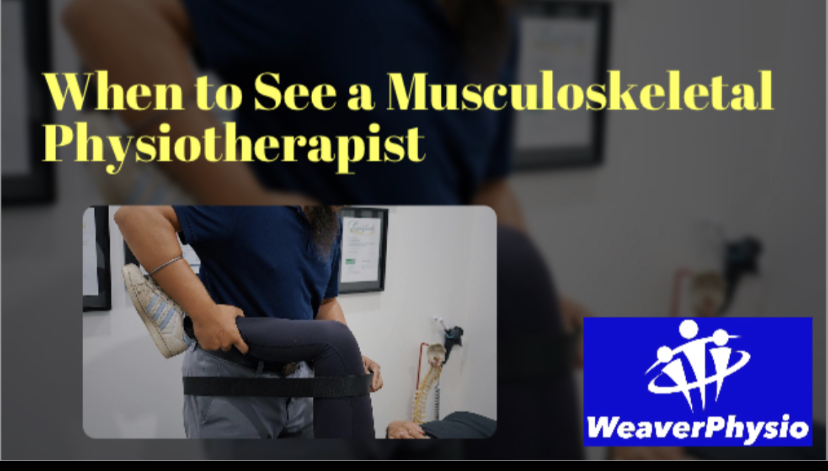
Musculoskeletal pain is one of the most common reasons people seek medical care. Whether it’s a stiff neck, aching lower back, or a sports injury that won’t heal, discomfort in your muscles, joints, tendons, or ligaments can stop you from living life to the fullest. But how do you know when it’s time to see a musculoskeletal physiotherapist?
At Weaver Physiotherapy & Sports Injury Clinic in Northwich, Cheshire, our Chartered Physiotherapists specialise in diagnosing, treating, and preventing musculoskeletal problems. In this guide, we’ll explain what musculoskeletal physiotherapy is, the signs that indicate you should see a physio, the conditions we treat, and the benefits of getting expert care.
What Is a Musculoskeletal Physiotherapist?
A musculoskeletal (MSK) physiotherapist is a healthcare professional trained to assess, diagnose, and treat conditions affecting the body’s muscles, bones, joints, ligaments, tendons, and nerves. Unlike general physiotherapists who may treat a broad range of patients, MSK physios focus specifically on injuries and disorders of the musculoskeletal system.
At Weaver Physio, our MSK specialists combine:
• Hands-on treatment such as joint mobilisation and soft tissue therapy.
• Exercise rehabilitation to restore strength, mobility, and function.
• Advanced technology including shockwave therapy, video gait analysis, and acupuncture.
• Evidence-based advice on posture, ergonomics, and injury prevention.
The goal is always the same — to help you recover, move better, and prevent future problems.
Signs You Should See a Musculoskeletal Physiotherapist
Not all aches and pains require physiotherapy, but there are clear warning signs that suggest you’d benefit from seeing an MSK specialist.
1. Persistent Pain That Doesn’t Improve
If you’ve had pain for more than two weeks and it isn’t improving with rest, ice, or over-the-counter remedies, it’s time to book an appointment. Pain that lingers may be linked to an underlying issue such as tendon irritation, muscle imbalance, or joint restriction.
2. Recurrent Injuries
Do you keep pulling the same muscle, straining the same joint, or suffering repeated back pain? A musculoskeletal physiotherapist can identify the root cause, whether it’s weakness, poor biomechanics, or posture-related.
3. Difficulty Moving or Reduced Flexibility
If you find it hard to bend, reach, twist, or move freely without pain, it’s a clear signal your musculoskeletal system isn’t functioning properly. Physiotherapy can restore range of motion and prevent stiffness from getting worse.
4. Swelling, Stiffness, or Weakness
Ongoing swelling, joint stiffness, or unexplained weakness in a limb may point to an injury such as a ligament sprain, cartilage damage, or tendonitis. Early physiotherapy can prevent complications.
5. Pain Affecting Work, Sport, or Daily Life
When pain or reduced movement stops you from training, working comfortably, or even enjoying a walk, it’s a strong sign you should seek expert help.
6. Posture-Related Aches
Neck, back, or shoulder pain is common in office workers and drivers due to long hours of sitting. MSK physiotherapists can provide posture correction, ergonomic advice, and strengthening exercises.
7. After an Accident, Fall, or Trauma
Even if you don’t feel immediate pain, accidents and falls can cause micro-injuries that worsen over time. Physiotherapy ensures you heal properly and avoid long-term problems.
Common Conditions Musculoskeletal Physiotherapists Treat
At Weaver Physio in Northwich, we see thousands of patients every year with a wide range of musculoskeletal conditions. Here are some of the most common:
• Back and Neck Pain – including sciatica, slipped discs, whiplash, and postural strain.
• Sports Injuries – such as sprains, strains, shin splints, and stress fractures.
• Tendinopathies – including Achilles tendinopathy, tennis elbow, and rotator cuff problems.
• Arthritis and Joint Pain – management of osteoarthritis, rheumatoid arthritis, and joint stiffness.
• Shoulder Injuries – frozen shoulder, impingement, and rotator cuff tears.
• Hip and Knee Pain – including runner’s knee, IT band syndrome, and patellofemoral pain.
• Foot and Ankle Pain – plantar fasciitis, ankle sprains, and biomechanical foot issues.
• Post-Surgery Rehabilitation – helping patients recover after joint replacements, ligament repairs, or spinal surgery.
Benefits of Seeing a Musculoskeletal Physiotherapist
Seeking help early can make a huge difference in your recovery. Here’s why:
1. Accurate Diagnosis
Physiotherapists are trained to identify the cause of your pain, not just treat the symptoms. This means you get a tailored treatment plan instead of a “one-size-fits-all” approach.
2. Faster Recovery
With hands-on therapy and structured rehabilitation, you can recover quicker than if you rely on rest and painkillers alone.
3. Preventing Recurrence
By addressing underlying weaknesses or movement patterns, physiotherapy reduces the chance of injuries coming back.
4. Avoiding Medication or Surgery
Many patients find physio helps them avoid invasive procedures or long-term reliance on medication.
5. Improving Performance
For athletes and active individuals, physiotherapy not only helps with recovery but also boosts performance by optimising movement efficiency.
What to Expect at Your First Appointment
If you’ve never seen a physiotherapist before, you may be unsure what happens at your first session. At Weaver Physio, here’s what you can expect:
1. Detailed Assessment – We’ll take a full history of your symptoms, lifestyle, and goals.
2. Physical Examination – This may include strength tests, flexibility checks, posture assessment, or gait analysis.
3. Diagnosis and Education – We’ll explain what’s causing your problem in clear, simple language.
4. Treatment Plan – You’ll receive an individualised plan combining manual therapy, rehab exercises, and self-care advice.
5. Ongoing Support – We’ll monitor progress and adapt your treatment as you recover.
Why Choose Weaver Physiotherapy & Sports Injury Clinic?
Choosing the right physiotherapist makes all the difference. At Weaver Physio, we pride ourselves on being Cheshire’s Sports Injury and Physiotherapy Specialists.
Here’s why patients trust us:
• ✅ 70+ years of combined clinical experience
• ✅ Chartered Physiotherapists registered with the HCPC and CSP
• ✅ Evidence-based treatments tailored to you
• ✅ Advanced technology including shockwave therapy, acupuncture, and video gait analysis
• ✅ Convenient Northwich location, serving Knutsford, Winsford, Middlewich, Tarporley & Frodsham
• ✅ A friendly, supportive team that puts your recovery first
Our motto: Your Trusted Partner in Recovery, Performance & Pain-Free Living.
When to Book an Appointment
You should book an appointment with a musculoskeletal physiotherapist if:
• Pain persists beyond a week or two.
• Pain interferes with daily life or sleep.
• You’ve had a recent injury or fall.
• Your condition is worsening despite rest or self-care.
• You want to prevent injury or optimise sports performance.
At Weaver Physio, we often say: Don’t wait for pain to become a problem — early intervention is key.
FAQs About Musculoskeletal Physiotherapy
1. Do I need a GP referral to see a physiotherapist?
No. At Weaver Physio, you can book directly without a GP referral.
2. How many sessions will I need?
This depends on your condition, but many patients feel an improvement within 3–5 sessions.
3. Does physiotherapy hurt?
Some treatments may feel uncomfortable, but our approach is always safe, gentle, and adapted to your tolerance.
4. Is physiotherapy covered by health insurance?
Yes — most major UK insurers cover physiotherapy. We can provide receipts for reimbursement.
5. What should I wear?
Wear comfortable clothing that allows us to assess and treat the affected area.
Conclusion
Knowing when to see a musculoskeletal physiotherapist can make a huge difference in your recovery. Whether you’re dealing with persistent back pain, a sports injury, or stiffness from sitting too long, physiotherapy offers safe, effective, and lasting solutions.
At Weaver Physiotherapy & Sports Injury Clinic in Northwich, Cheshire, we’re here to help you move better, recover faster, and live pain-free.
📍 Serving Northwich, Knutsford, Winsford, Middlewich, Tarporley, Frodsham & surrounding Cheshire areas.
📞 Call us today on 01606 227484
🌐 Visit http://weaverphysio.com
Weaver Physio – Cheshire’s Trusted Partner in Recovery, Performance & Pain-Free Living.


